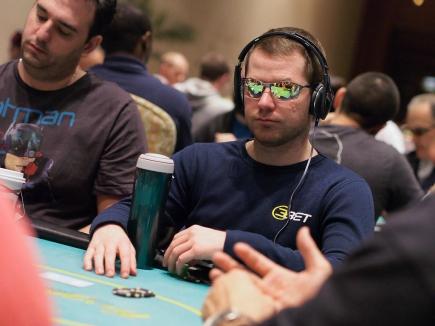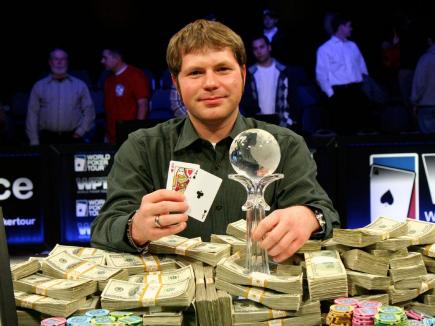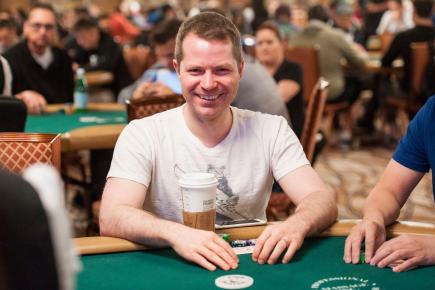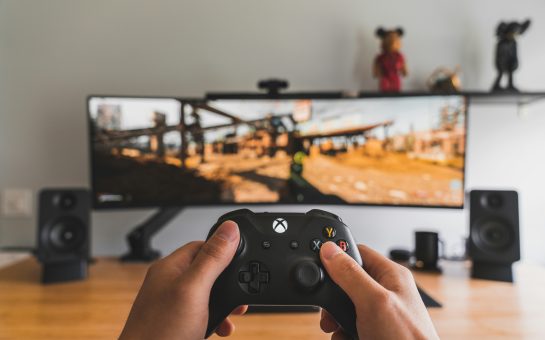Jonathan Little has always been besotted with card games.
It started as a teenager when he began competing in Magic of the Gathering during his teen years and it resulted in him dropping out of college to play poker full-time. So far today, he’s earned just under $7million in winnings.
His accolades include winning the World Poker Tour’s Season VI Mirage Poker Showdown, the Season VII Foxwoods World Poker Finals and the WPT Season VI Player of the Year.
But to be that successful in the game, it doesn’t require you to be genius, he claims; just a slightly obsessive nature and the willingness to make some huge sacrifice.
Little says: “I would study for 14 hours a day every day.
“I had no time off. I would take half a day off at Christmas to go hang out with my family. For three years straight I had no social life. I devoted my life to poker and if you ask the best players what they did, it will be something kind of similar.
“From the age of about 18 to 21, I would play all night and every day. I was at college at the time and had two jobs: one at the airport and one in the comic book store.

“I quit the one at the comic book store, and because I was working the graveyard shifts at the airport, I would use that time to study poker. I was making $10 an hour at the airport but $200 an hour online.”
Of course nowadays most things are online: from poker to gambling to casinos. Here Age of Gods have found the best online casino bonus offers for UK slot fans – 450 in total!
And poker is a peculiar game in which the rules are simple but the strategy has so much depth that renowned books on the subject published in the 70s are now almost obsolete, the game developing to the point where it takes such a profoundly high level of thinking to get to Little’s level.
To give you an idea, player and pioneer of strategy David Sklansky puts forward the theory which suggests that there are up to five levels of thinking for a poker player, the amateur players utilising only level one and maybe two.
Level five, the elite tier, means that in a hand you ask yourself: ‘What does my opponent think that I think he thinks I have?’

But you shouldn’t be put off by the complexities of the top level. Little says you don’t have to devote your whole life to the game and be an amazing player to make some money; you can put in a couple of hours a day and still come away with a decent income.
“Put in the time and eventually you will get there,” Little says.
“You have to stop worrying about the money – that is irrelevant. Your goal must be to play well. Then the money will follow.
“Go on a regular site and then play small buy-in games. That way, if you lose, it doesn’t matter. You’re just playing for the experience.
“Soon you will play more tables and bigger tables and your win rate will increase over time.
“Remember your goal is to get good not to win. How do you know when you’re good? When you start winning money, of course. It’s all about trial and error but also studying a lot.”
Little soon turned his original $50 to about $300,000 but concedes that he wasn’t naturally talented at the game; instead, it was his ruthlessness that got him far.
“I was not good at poker to start with,” the 34-year-old says.
“I was way too cautious. I would try and think how to not lose from a certain situation. Whereas with poker, you must ask yourself how you can win.
“When I first started playing it was in games that had a 50 cent buy-in – but that was just for fun. When I had something like 150,000 dollars I started to cash out 1,000 dollars a month. I’m an intense person. I will go hard if I am going to do something. I don’t take it easy.”
Little has authored 14 books on poker and has two more on the way. He is all about setting goals and achieving them. He’s a self-confessed workaholic who runs a poker school and has an online blog which provides tips and suggestions, such as even how to pack your bag efficiently for a poker tournament and what to bring.

The Pensacola-born player puts great importance in organisation and discipline – a fundamental skill in being a successful poker play.
“Money management is key,” he says. “You need to ensure that you don’t lose all your money at one time. As you have a bigger bankroll the risk of going broke gets lower. But people will go on bad runs.
“In fact, many poker players lose everything; even some of the most technically sound ones. You see it in the super high roller events nowadays. Some of the players have like 20% of all their money on the table.
“All they need to do lose four or five games and they’re out. Some are cool with that. They don’t care. They know they’re a talented player and can win it all back. There are other players who get lucky.
“They win one tournament for 50 thousand dollars – but then they think they’re good and start playing in big cash games. They’re usually broke in a month.”
Poker is no easy ride. It is, of course, not all skill-based and sometimes you can play extremely well in a tournament and come away with a loss. You’re betting on probability which will, over time, work in your favour and you start winning money.
It is also a highly emotional game for some, especially when the cards don’t go your way and you feel an injustice was done. A bad reaction to this is called steaming – or tilting.
It is when, after a bad run, emotions get the better of you and you start making rash decisions. It has destroyed careers.
“A lot of tilting happens when someone gets aces and they lose to a much weaker hand,” Little says.
“They feel an injustice was done. But that’s poker. People go crazy, saying the game is rigged, or God hates them. But when you’ve played enough you get used to it. Your job is to make the best decision at that moment. You can’t control how cards come.
“I wanted to model myself on the best players in the world. Players like Tony G Phil Hellmuth – yes, they are great – but it’s the ones who zone out, who control their emotions well who I strive to emulate.”
Little’s attitude to poker is very similar to how he approaches life in general. It’s fair to say the two share similar traits: you will go on bad runs but ultimately if you keep plugging away, the odds will soon work in your favour.
“You’re not entitled to anything in life,” Little says.
“You just got to deal with it. If anything, you should be happy if you get a bad beat because that means you didn’t do anything wrong.
“Whenever you have goals, you’ve got to ask yourself what you’re actually doing to achieve it.
“Like I always wanted to learn another language but I only studied an hour a week from an app on my phone.
“And I didn’t get anywhere with it, and of course, I didn’t because I wasn’t putting in the time. Essentially, I thought it would be neat to learn – but really it’s not a goal, because if it was I would have gone it and actually learned it.
“But I can guarantee that if you spend 14 hours of your life – all day every day – playing and studying, you can be good at anything you want to.”



